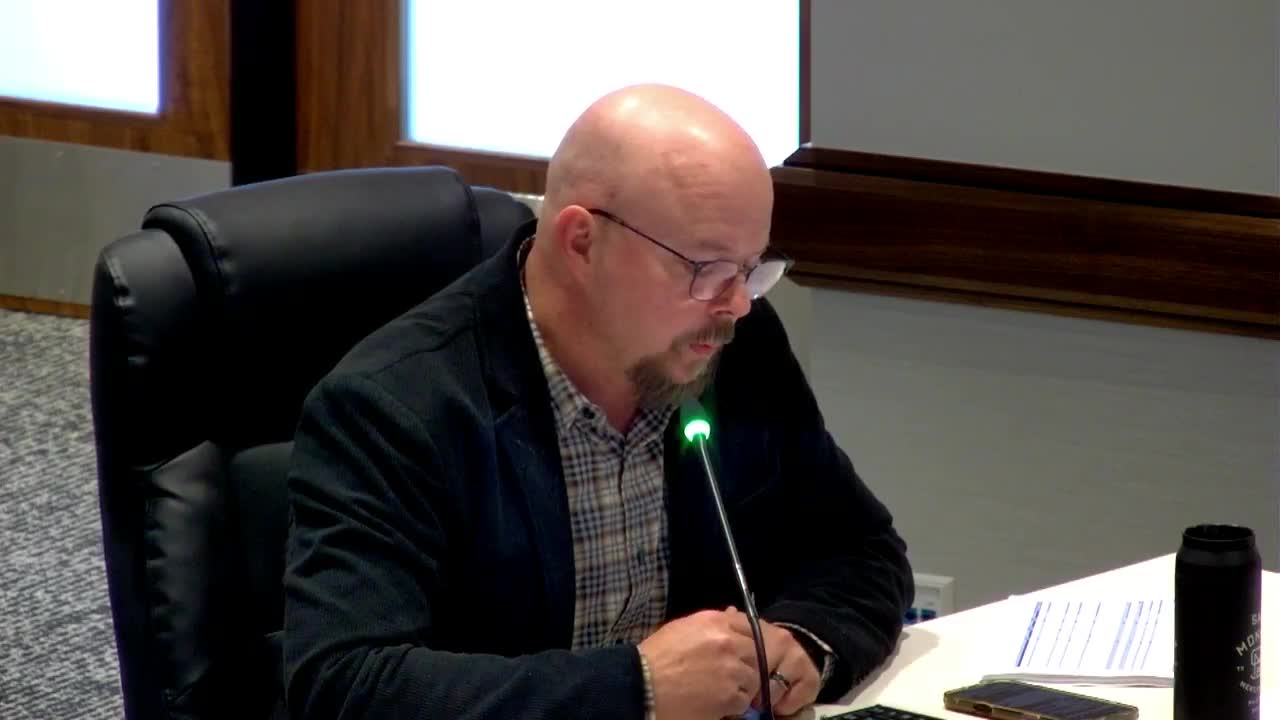Amarillo Proposes New Vector Control Fee to Fund Year-Round Mosquito Management
August 06, 2025 | Amarillo, Potter County, Texas
This article was created by AI summarizing key points discussed. AI makes mistakes, so for full details and context, please refer to the video of the full meeting. Please report any errors so we can fix them. Report an error »

In a recent Amarillo City Council workshop, city officials gathered to discuss pressing issues surrounding public health and mosquito control funding. The atmosphere was charged with a sense of urgency as council members explored potential solutions to enhance the city’s mosquito management efforts, which have become increasingly vital due to the region's year-round mosquito growth season.
One of the primary proposals on the table was the introduction of a vector control fee, which would add approximately 50 cents to residents' water bills. This fee, modeled after similar charges in neighboring communities, could generate around $439,000 annually. The funds would be directed towards bolstering mosquito control services, which are currently funded solely through tax dollars. Officials emphasized that effective mosquito management is crucial not just for comfort but for public health, as the city grapples with the challenges posed by these pests throughout the year.
The discussion also touched on the implications of recent legislative changes, particularly Senate Bill 1008, which mandates that local fees align with state charges. This shift has resulted in increased costs for some facilities while eliminating fees for others, complicating the city's ability to manage inspections effectively. Council members expressed concern over the sustainability of providing inspection services outside city limits, given the rising operational costs and the strain on resources.
As the meeting progressed, the conversation shifted towards exploring alternative funding mechanisms for public health services. Suggestions included revisiting technology fees and other cost recovery strategies that could alleviate financial pressures on the city’s budget. The council recognized the importance of maintaining a robust public health district, especially in light of the limited resources available from the state.
In conclusion, the workshop underscored the city’s commitment to addressing public health challenges head-on, particularly in mosquito control. As Amarillo navigates these complex issues, the proposed vector control fee may serve as a critical step towards ensuring the community's health and well-being, while also prompting further discussions on sustainable funding solutions for essential services. The council's proactive approach reflects a growing awareness of the interconnectedness of public health, community resources, and fiscal responsibility.
One of the primary proposals on the table was the introduction of a vector control fee, which would add approximately 50 cents to residents' water bills. This fee, modeled after similar charges in neighboring communities, could generate around $439,000 annually. The funds would be directed towards bolstering mosquito control services, which are currently funded solely through tax dollars. Officials emphasized that effective mosquito management is crucial not just for comfort but for public health, as the city grapples with the challenges posed by these pests throughout the year.
The discussion also touched on the implications of recent legislative changes, particularly Senate Bill 1008, which mandates that local fees align with state charges. This shift has resulted in increased costs for some facilities while eliminating fees for others, complicating the city's ability to manage inspections effectively. Council members expressed concern over the sustainability of providing inspection services outside city limits, given the rising operational costs and the strain on resources.
As the meeting progressed, the conversation shifted towards exploring alternative funding mechanisms for public health services. Suggestions included revisiting technology fees and other cost recovery strategies that could alleviate financial pressures on the city’s budget. The council recognized the importance of maintaining a robust public health district, especially in light of the limited resources available from the state.
In conclusion, the workshop underscored the city’s commitment to addressing public health challenges head-on, particularly in mosquito control. As Amarillo navigates these complex issues, the proposed vector control fee may serve as a critical step towards ensuring the community's health and well-being, while also prompting further discussions on sustainable funding solutions for essential services. The council's proactive approach reflects a growing awareness of the interconnectedness of public health, community resources, and fiscal responsibility.
View full meeting
This article is based on a recent meeting—watch the full video and explore the complete transcript for deeper insights into the discussion.
View full meeting
